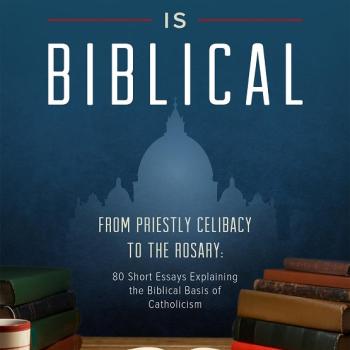In particular, President Clark was bothered that the revised versions cast doubt on cherished phrases by offering alternative readings, supported by ancient texts, in the margin. He was yet more offended that other treasured sayings were actually removed from the text and given only marginal status. Equally distressing, familiar KJV words were replaced by new translations: "charity" in 1 Corinthians 13 became "love"; "lunatic" (Mt. 17:14) became "epileptic." But what disturbed Clark most deeply was the tendency he thought he saw to reduce the divine status of Jesus and the supernatural dimension of scripture in general. "Miracles" were now called "signs," "wonders," or "mighty works." Textual doubt over the phrase "the Son of God" was noted in revisions of Mark 1:1. Marginal alternate readings were documented for Christ as "God over all" in Romans 9:4-5. Like opponents of the revisions nationally and internationally, Clark followed conservative scholars (especially John W. Burgon and F. H. A. Scrivener) in citing example after example where modern translations scandalized traditional tastes.
President Clark's reasoning, however, contained two major flaws. The least that could be said of the revisers' changes was that plausible scholarly reasons existed for making them. And if the best evidence suggested that certain passages in the KJV were not in the originals but were interpolated by later copyists, it was hardly becoming to insist that they be retained simply because they were treasured traditions or because they reinforced Latter-day Saint perceptions. Joseph Smith, the Book of Mormon, and the Bible itself had all condemned such tampering.
Moreover, even if one allowed theological perspectives to consciously take precedence over textual and translation accuracy, there are passages where modern translations, including those Clark attacked, directly ascribe deity to Jesus when the King James Version does not. It is thus scarcely just to accuse the modern translators of systematic theological bias exceeding the inevitable bias of any translation, including the KJV. The central point, however, is that even for a people like the Latter-day Saints, who believe in current revelation, translations of scripture accomplished by human scholarship must be based on what the best texts actually say, not on what a preexisting theology or tradition wants them to say.
President Clark was aware of this, of course. He therefore marshaled evidence, both prophetic and scholarly, to back up his doctrinal concerns. Unfortunately, he drew his prophetic support from a fundamental misperception of Joseph Smith's revelations. Specifically, Clark felt the Prophet's inspired revision of the Bible supported the King James Version in all essential matters. Whenever one compared the Prophet's "translation" with objectionable changes in the RV/ASV/RSV, Joseph's Bible more closely resembled the KJV -- thus demonstrating the errors of the modern revisions.
This line of thought was reinforced by President Clark's understanding of revelation in general. For all his erudition in other matters, he seems to have had little apprehension of the conceptual nature of Joseph Smith's revelations. Instead, Clark thought of them as almost verbally exact expressions recorded by the Prophet precisely as they fell from the mouth of God. President Clark believed the Doctrine and Covenants, for example, preserved "the words of the Lord as He [actually] spoke them." Similarly, for Clark, Joseph Smith's changes in the KJV indicated the original form of the ancient texts.
There was irony in the fact that Joseph Smith's inspired translation, as published by the RLDS Church, was now being used to authenticate the KJV text. After all, it had been Mormon suspicions about this publication that had, in the 1860s, sponsored the initial elevation of the KJV's stature among the Saints. But more than irony was involved here. Clark's logic actually inverted reality. Joseph Smith's biblical revision resembled the King James Version because that is the version he worked from and amended, not because God's native tongue was Late Middle or Early Modern English. For similar reasons, Joseph's other revelations also retained a measure of the language of King James. However, the Prophet himself could scarcely have considered all his revelations to be the exact words of God, which he then recorded as if by dictation, for he frequently, publicly, and unapologetically rearranged, reworded, conflated, and augmented them.
President Clark was by no means the first, it should be noted, to use this reasoning. Because Joseph Smith had couched his revelations as though God were speaking in the "first person" in a 19th-century dialect of Jacobean English, the earliest Mormons, who were as immersed in biblical phraseology as Joseph was himself, doubtless assumed this was God's manner of speech when he addressed Americans. A century later, however, the language of the KJV was less taken for granted by believing Christians. Alternative translations in modern language, not merely revisions of the KJV, were rapidly appearing. Remaining allegiance to Elizabethan and Jacobean forms became more conscious. Thus, in celebrating the 300th anniversary of the KJV, a 21 April 1911 column in the Church-owned Deseret Evening News marveled, even more innocently than did J. Reuben Clark, that King James's "is the version given to the world by eminent scholarship in the very same language in which modern revelations are given."
For the conclusion of this article, read The Language of God?




